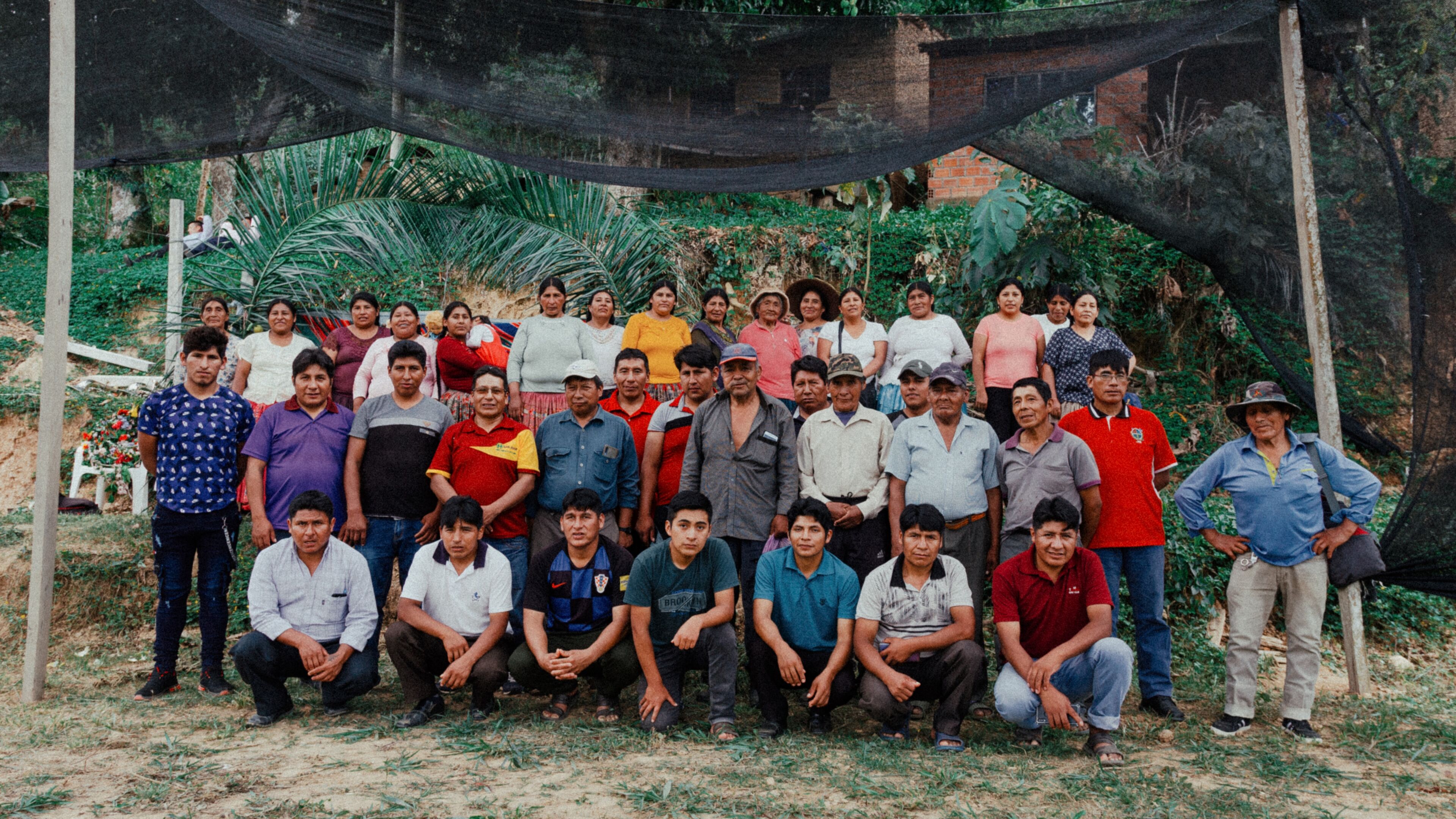During our sourcing trip, we witnessed a sad reality. "External consultants" were advising the Yungas community to cut shading trees as, according to them, full sun coffee had better yield. Some consultants were even advising on abandoning the organic certification all together to allow chemical treatments.
Aymara
Bolivia - La Paz - Farms Yungas - Grade 1 - FW - Aymara,Organic
Pick your crop :
Aromatic notes:
Spot price
€/kg
Producers that have chosen to go beyond what is expected by the organic standards
To defend a less destructive model of agriculture, we have written a specifications book for all our Bolivian coffees. These precise specifications have the aim to incentivize more sustainable practices and reforestation within the organic certification.
Felix is a young Bolivian entrepreneur. With a background in mechanics, his love for coffee brought him back to this world. Son of a coffee producer, he has been our field man in Yungas for the past 4 year. In search of each Terroir’s potential, he seeks excellent coffees but above all, he explores Human potentials. Working closely to farmers, he works in favor of a richer biodiversity in coffee farms implementing, more shade.
Buying these coffees is a way to support their practices within an organic and also sustainable agriculture.
Marketing tools & Certifications
POS displays, postcards, QR codes for packaging, ...
- Bolivia
Origin
region
La Paz terroir
Caranavi Species
Arabica Varieties
Typica,
Red catuai
Process
Washed
Drying
Patios
Packaging
60kg - Jute bags
Altitude
1660 Harvest period
June - October Type of harvest
Manual
Terroir Caranavi
Analyzed to the nearest gram
Find detailed physical and sensory analyzes of your coffee in the quality sheet with:
- Density
- The humidity level
- Water activity
- Colorimetry
- The sieve
- The nature of the defects
- The score and its details
- The aromatic profile (downloadable)

Project Aymara - Bolivia
For sustainable coffee production in the Yungas forests
Together, LATA 16, Cooperativa San Juan, CooperativaAljiri and Belco contributed part of the export funds to hire agronomic experts to produce 4,000 seedlings to reforest the area of the initiative's member producers in this region.
Equipments selection
Unit price
€ ex.tax/U
From xx products
€ ex.tax/U
Unit price
€ ex.tax/U
From xx products
€ ex.tax/U
Unit price
€ ex.tax/U
From xx products
€ ex.tax/U
Unit price
€ ex.tax/U
From xx products
€ ex.tax/U
Unit price
€ ex.tax/U
From xx products
€ ex.tax/U
Unit price
€ ex.tax/U
From xx products
€ ex.tax/U
Unit price
€ ex.tax/U
From xx products
€ ex.tax/U
